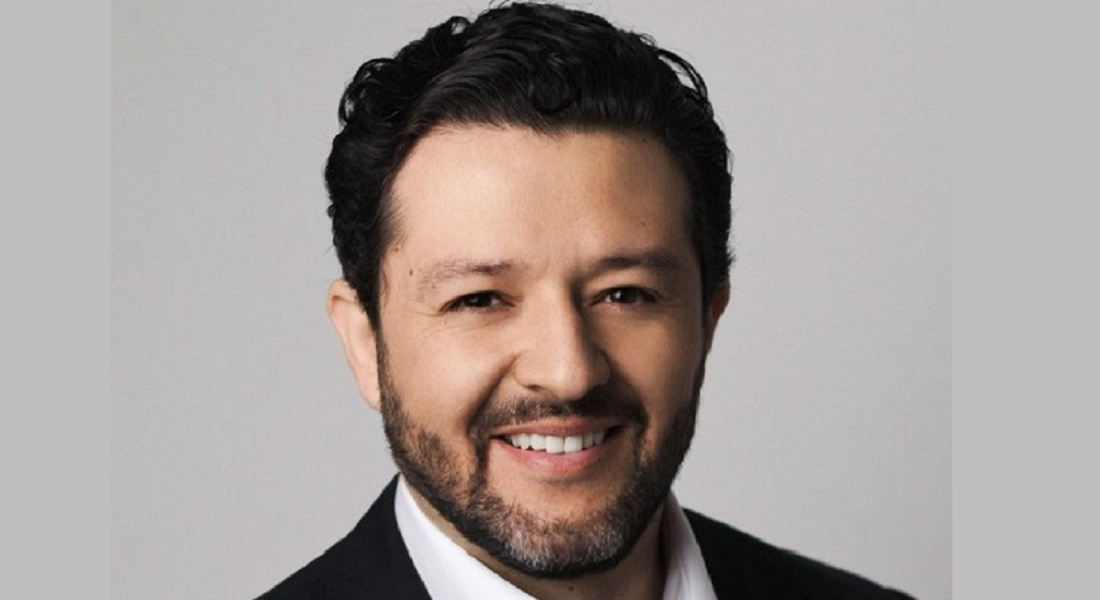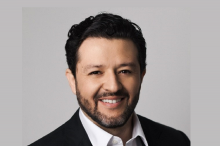As the innovation ecosystem in Latvia grows and improves, it becomes more appealing not just to local innovators but also to entrepreneurs from abroad. A great example of that is Erick Pastor – the co-founder of deep tech startup ChemCode – who is born in Ecuador and has been living in Latvia since the end of 2017. Deep tech scene is not an easy path for a startup to take, and neither is founding it in a foreign country – so Erick has had to learn and adapt quickly, rapidly gaining a lot of valuable experience and insight on the Latvian innovation ecosystem.
First steps in Latvia
Erick has been exploring different business and entrepreneurship approaches for about a decade – mostly with software-related projects. Eventually, Erick realized that he has been completely hooked by science-based innovation and deep tech startup scene. After hearing about the rapidly growing startup ecosystem in the Baltics, he decided to try his luck here – practically on the other side of the world from his birth country.
After finishing an MBA at Riga Technical University, Erick began to look for an opportunity to found a startup: “I spent a good while scouting universities and scientists around Latvia for ideas I would like to work on, but had little luck and ended up having to go home for a while after loss in the family. But I didn’t give up and after returning to Latvia I decided to participate in Commercialization Reactor. It was an appealing opportunity because the projects already had innovative science behind them – as opposed to having to start from zero.”
Through the Commercialization Reactor program, Erick found a scientist to partner with – working on an idea of creating chemical fingerprints for materials used in the manufacturing industries. With the value proposition of providing authentication on the material level and creating security against material counterfeiting, ChemCode was born!
Hard path of deep tech startup
“When you are developing your deep tech startup, even small steps can feel like huge achievements,” says Erick. Getting an international license, moving forward with the patent application (intellectual property is especially important for science-based startups), getting funding from accelerator programs, being selected as a promising innovator in the Baltics by organizations and media outlets – are just some of the milestones that Erick mentions when reminiscing on the two years of ChemCode’s existence.
All of these steps involved a lot of struggle and the necessity to learn and adapt quickly. “We started with a specific material and specific application, and when moving to explore whether the market needs it, I understood that there were more barriers to entry than expected,” Erick adds. “It was an adventure for us – trial and error, presenting the technology and getting feedback, over and over again.”
To really understand how science-based startups need to be commercialized, ChemCode went through this interaction and iteration process with more than 150 companies. Only then Erick felt like he understood how the market behaves, what are the drivers, and what truly is the viability of ChemCode as a business: “It’s one thing to have a product-market fit and another - how to have a technology-market fit.”
Current state of ChemCode
ChemCode is still pre-revenue and has been exploring opportunities all around the world to find the first long-term partners. Currently, there are two proof-of-concept projects (where companies in the US and Europe have received samples and are reviewing ChemCode as a technology and validating the value proposition) and one pilot project.
As the next stage from proof-of-concept, for a pilot project the validation is complete and the company has decided that it makes sense to incorporate this technology – at least to see how it does in practice for a small production sample. This ChemCode pilot project is currently taking place in Japan, within an automotive industry company – which is not surprising, as material quality is very important for safety on the road.
For Erick, these projects show that the lessons have been learned and internalized: “We are confident that ChemCode has the potential to bring value to certain niches in the market. That said, I did not expect it to take this long to get where we are. I lacked the experience and knowledge about the science-based startup cycle of commercialization”.
Latvian innovation ecosystem from a newcomer perspective
When talking about his experience as a startup founder from abroad, Erick emphasizes that it is very important to have a local partner. The main benefit is that both government and non-government entities are much easier to access for someone that knows the culture and has local connections. Language skills are also very important - despite a lot of information being accessible in English, it’s not everything and miscommunication can happen as a result of subpar translation. These factors can really slow down a lot of processes when your startup is desperate to survive and every day matters.
On the positive side, Erick mentions that the smaller scale of Latvia has certain benefits – in large cities, the attitude towards individual entrepreneurs is quite cold and distant. Here, however, new startups are much more welcome and treated warmly.
The main thing Erick would like to see a change in the Latvian innovation ecosystem is more promotion of Latvia as a startup brand. Countries like Estonia and Finland have really polished communication strategies and are not shy to show what they are capable of. If the country's image improves, the startups located there also get an advantage and become more recognized through this positive branding. And of course – that results in a feedback loop where the country can then proudly display this success.
However, it’s important to remember that it’s not all just dry entrepreneurship. “Business is about people – how we can do something better for them or improve the quality of life. I wish all institutions understood that better,” concludes Erick

